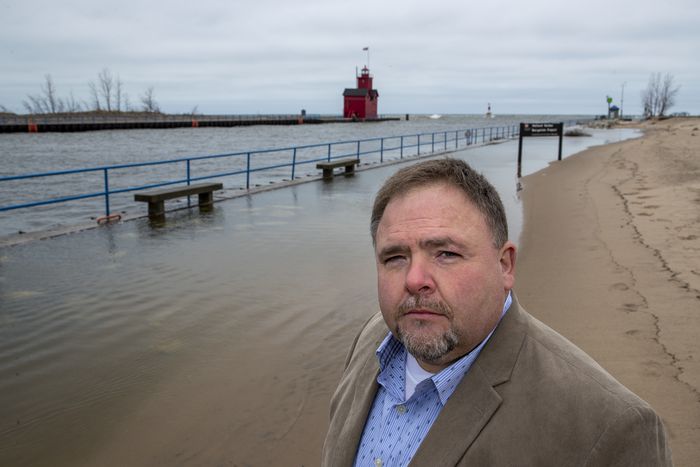Posted on December 24, 2020
Bipartisan legislation meant to assist Great Lakes coastal communities struggling with high water and shoreline erosion is headed to President Trump’s desk.
The standalone bill would help states create new revolving loan programs for projects that reduce the risk to coastal infrastructure posed by elevated water levels.
It was introduced in March by Sen. Gary Peters, D-Mich. It cleared both the U.S. House and Senate this week amid the waning days of a lame duck session dominated by negotiations over stopgap spending and COVID-19 pandemic relief.
The bill was co-sponsored by Sens. James Lankford, R-Okla., and Ron Johnson, R-Wis.
“Providing cost-effective tools directly to local communities across Michigan is critical to helping them stave off the harmful effects that coastal erosion, flooding and rising water levels have on people’s lives and livelihoods,” Peters said.
The “Safeguarding Tomorrow through Ongoing Risk Mitigation (STORM) Act” amends the Stafford Disaster Relief Act by allowing the Federal Emergency Management Agency (FEMA) to fund coastal resiliency and hazard mitigation projects through state capitalization grants, which are used to fund low-interest loans for local communities.
FEMA doesn’t currently fund such coastal projects because lake level changes and shoreline erosion doesn’t generally adhere to the well-defined start-and-end points that are needed for governments to apply for federal disaster relief.
The legislation authorizes the appropriation of $200 million for the program and includes a $5 million cap on individual projects.
In addition to high water and erosion, the loans could fund local efforts to mitigate the impact of drought and prolonged heat, severe storms such as hurricanes or tornadoes, wildfires, earthquakes and storm surges.
Under the bill, states can prioritize and direct some funding to zoning and land use planning efforts focused on low-impact development and green infrastructure.
It does not provide for funding to individual homeowners threatened by high water or erosion.
Peters’ office announced the bill with supportive statements from city officials in Traverse City, Alpena, Manistee and Luna Pier — all communities which have grappled with infrastructure hurdles caused by historic Great Lakes water levels.
The swollen lakes have intensified the impact of high winds on shoreline property and sped-up the regular erosion process over the past several years.
Municipalities across the region have struggled with lake water backing-up into wastewater systems, threatening water treatment plants, washing-out roads and closing bridges.
As the lakes have surged, some coastal communities have begun to rethink rules that permit construction of buildings within a certain distance of the water.
Property owners have largely turned to seawalling methods such as rock armoring and revetments to protect roads and buildings. There has been a growing pushback from some coastal residents concerned about the long-term impact of increased shoreline hardening.
Great Lakes water levels have been dropping in recent months although they remain high after flirting with or breaking multiple records over the past two years.
Source: mlive






